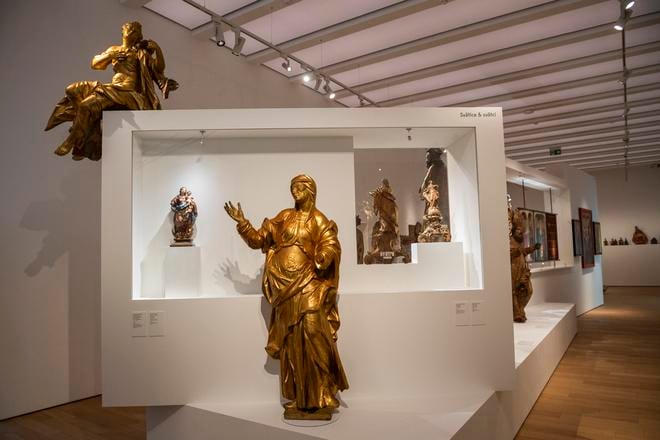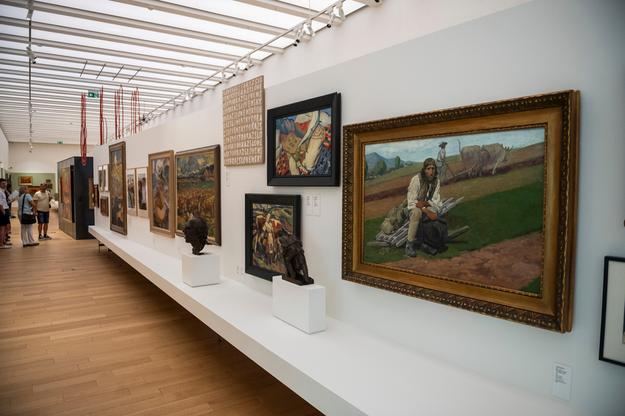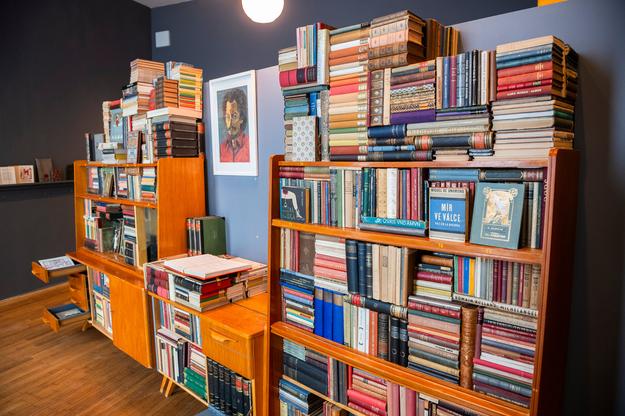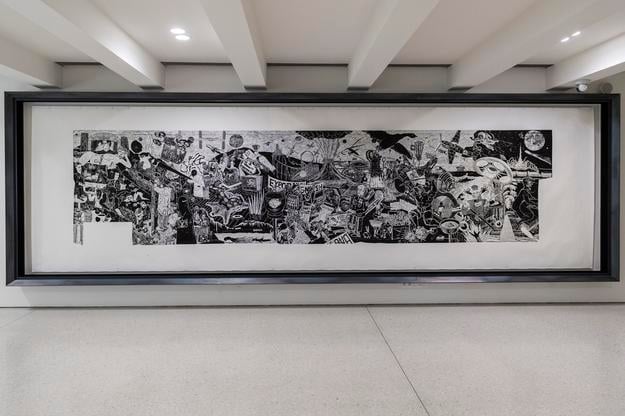The Slovak National Gallery (SNG) yesterday opened the first of two long-term collection displays. They present the greatest gems of sacred art from the Gothic and Baroque periods, and of Slovak modern art from the first half of the 20th century.
“Many of you [visitors] were waiting for the display of these pieces of art for more than 20 years,” Dušan Buran, one of the curators of the SNG.
The SNG reopened its exhibition premises in Bratislava last December after an extensive, seven-year refurbishment. Before that, exhibitions had been gradually curtailed since 2001 due to the gallery's deteriorating condition.
Sacred Art and The Modern are the first two of six planned long-term SNG collection displays in Bratislava. The remaining four will open by the first half of 2024, and in the meantime several short-term exhibitions will be staged, the SNG says.
Sacred art
In the Sacred Art display, visitors can see the SNG’s most precious Gothic and Baroque paintings and sculptures, as well as icons and paintings from European art of the 16th to 19th centuries.
One of the highlights is a tabernacle from the third quarter of the 13th century. Only around 10 such artworks have been preserved, noted Buran.
“This is the oldest and most published piece of art in the SNG’s collection,” said Buran, who curated the display with Katarína Kolbiarz Chmelinová.
Another highlight is a relief depicting the birth of Christ, dating from 1480-1490.
“It used to be the central piece of the Gothic altar of St Martin's Cathedral,” said Buran. The altar was dismantled to make space for the Baroque altar created by George Rafael Donner.
The display guides visitors through several themes and aspects associated with religious art, such as the Passion, the Holy Family, Folk Piety, and Original & Copy, ultimately arriving at a group of the oldest wooden sculptures in Slovakia.
Modern art
The other display, The Modern, introduces the story of Slovak visual art from the first half of the 20th century.
“We have selected the most important developments in our art between the years 1890-1900 and 1948,” said Katarína Bajcurová, the display’s curator. “Visitors will discover how art responded to new civilisational challenges and social transformations, how artists reacted to the world they lived in, and how these realities were reflected in their works, thus changing the imagery and language of visual art.”
Key points are highlighted by the inclusion of several artworks from the second half of the 20th century that indicate the affinity of certain semantic codes and images, a shift in their understanding, and their transformation over time.
Esterházy palace opened, too
The gallery also re-opened its popular experimental displays Amazing Art History with Professor Hamster, the unique Kornel and Naďa Földvári Library, and the Antimuseum of J.K. in the Esterházy Palace. These were complemented by the new display Biblioman, devoted to the art historian and bibliophile Igor Gazdík.
“We are presenting a selection of his bibliophilia at the SNG in an authorial re-design of a living room set in the times of normalisation by designer Sylvia Jokelová,” said Viera Kleinová, the display’s curator.
Additionally, for the occasion of the opening of the collection displays, the SNG introduces a large-scale graphic, In the Name of the Pentode – Everything Is as It Really Is, by contemporary artists Pavol Čejka, Jan Čumlivský, and Tomáš Klepoch.



 Sacred Art is one of two long-term displays the Slovak National Gallery opened on June 22. (source: TASR)
Sacred Art is one of two long-term displays the Slovak National Gallery opened on June 22. (source: TASR)
 The Modern, one of two long-term collection displays at the SNG. (source: TASR)
The Modern, one of two long-term collection displays at the SNG. (source: TASR)
 The new display Biblioman, devoted to the art historian and bibliophile Igor Gazdík. (source: TASR)
The new display Biblioman, devoted to the art historian and bibliophile Igor Gazdík. (source: TASR)
 The large-scale graphic In the Name of the Pentode – Everything Is as It Really Is, by contemporary artists Pavol Čejka, Jan Čumlivský, and Tomáš Klepoch. (source: TASR)
The large-scale graphic In the Name of the Pentode – Everything Is as It Really Is, by contemporary artists Pavol Čejka, Jan Čumlivský, and Tomáš Klepoch. (source: TASR)